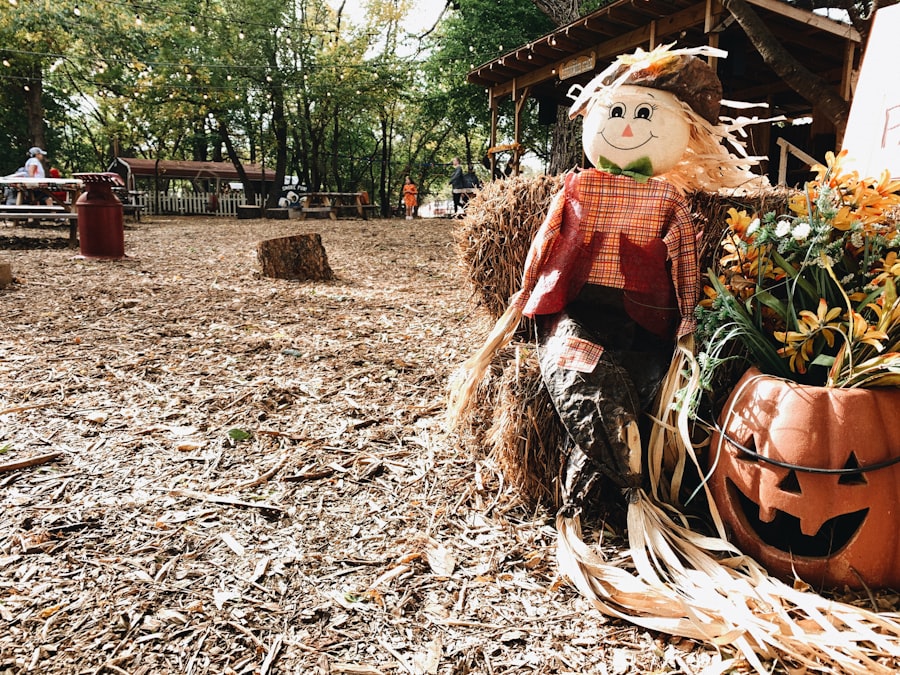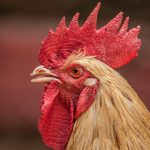Chicken hawks, also known as raptors, are birds of prey that pose a significant threat to backyard chicken flocks. These predators include species such as the red-tailed hawk, Cooper’s hawk, and sharp-shinned hawk. They are skilled hunters with keen eyesight and powerful talons, making them a formidable threat to chickens and other small animals.
Chicken hawks are opportunistic predators, and they will not hesitate to target unprotected chickens as a source of food. Chicken hawks are often identified by their sharp, hooked beaks, keen eyesight, and powerful talons. They are typically medium to large-sized birds with broad wings and long tails, which enable them to soar and maneuver with agility.
These predators are known for their stealthy hunting techniques, often swooping down on unsuspecting prey with incredible speed and precision. It is important for chicken owners to be able to recognize the signs of chicken hawk activity in their area in order to protect their flocks from potential attacks.
Table of Contents
- 1 Creating a Safe Environment for Your Chickens
- 2 Implementing Deterrents to Keep Chicken Hawks at Bay
- 3 Utilizing Visual and Auditory Scare Tactics
- 4 Building Chicken Coops and Enclosures to Protect Your Flock
- 5 Using Natural Predators to Ward Off Chicken Hawks
- 6 Seeking Professional Help and Legal Options for Dealing with Chicken Hawks
- 7 FAQs
- 7.1 What is a chicken hawk?
- 7.2 Why do chicken hawks target chickens?
- 7.3 What are some signs that a chicken hawk is targeting my chickens?
- 7.4 How can I keep chicken hawks away from my chickens?
- 7.5 Are there any legal methods to deter chicken hawks?
- 7.6 What should I do if a chicken hawk continues to target my chickens?
Key Takeaways
- Chicken hawks are a threat to your flock and can be identified by their sharp talons, hooked beaks, and keen eyesight.
- Creating a safe environment for your chickens involves providing adequate shelter, secure enclosures, and minimizing open spaces.
- Implementing deterrents such as scarecrows, reflective objects, and noise-making devices can help keep chicken hawks away from your property.
- Visual and auditory scare tactics like hanging shiny objects, using predator calls, and playing loud noises can help deter chicken hawks from targeting your chickens.
- Building chicken coops and enclosures with sturdy materials and secure latches can protect your flock from chicken hawks and other predators.
- Utilizing natural predators like dogs, cats, and even larger birds of prey can help ward off chicken hawks from your property.
- Seeking professional help from wildlife experts and exploring legal options can provide additional support in dealing with persistent chicken hawk threats.
Creating a Safe Environment for Your Chickens
Secure Coop and Run
One of the most effective ways to do this is by providing a secure and predator-proof coop and run for your flock. This means using sturdy materials such as hardware cloth or welded wire to construct the enclosure, ensuring that there are no gaps or weak points where predators could gain access.
Protecting from Above
Additionally, it is important to cover the top of the run with wire or netting to prevent chicken hawks from swooping down from above.
Providing Shelter and Hiding Spots
In addition to a secure coop and run, it is also important to provide adequate shelter and hiding spots for your chickens. This can include dense shrubbery, brush piles, or other natural cover where chickens can seek refuge if they sense danger.
By creating a safe and secure environment for your chickens, you can greatly reduce the risk of chicken hawk attacks and help your flock feel more secure and protected.
Implementing Deterrents to Keep Chicken Hawks at Bay

Implementing deterrents is an effective way to keep chicken hawks at bay and protect your flock from potential attacks. One common deterrent is the use of scare devices such as reflective tape, shiny objects, or predator decoys. These visual deterrents can help to disrupt the hunting patterns of chicken hawks and make them think twice before targeting your chickens.
Additionally, motion-activated devices such as sprinklers or noise makers can startle and deter predators from approaching your coop and run. Another effective deterrent is the use of fencing or netting to create a physical barrier between your chickens and potential predators. This can include installing a roof over the run or using electric fencing to deter chicken hawks from attempting to breach the enclosure.
By implementing these deterrents, you can greatly reduce the likelihood of chicken hawk attacks and help keep your flock safe and secure.
Utilizing Visual and Auditory Scare Tactics
Visual and auditory scare tactics can be effective in deterring chicken hawks from targeting your flock. Visual scare tactics can include hanging shiny objects such as CDs or aluminum foil strips around the coop and run, as well as using predator decoys such as owls or hawks to create the illusion of a larger predator presence in the area. These visual deterrents can help to disrupt the hunting patterns of chicken hawks and make them think twice before attempting to attack your chickens.
Auditory scare tactics can also be effective in deterring chicken hawks from approaching your flock. This can include using noise makers such as air horns, bells, or whistles to create loud and unexpected sounds that startle and deter predators. Additionally, playing recordings of predator calls or distress calls can help to create a sense of danger and make chicken hawks think twice before targeting your chickens.
By utilizing visual and auditory scare tactics, you can help protect your flock from potential attacks and create a safer environment for your chickens.
Building Chicken Coops and Enclosures to Protect Your Flock
Building secure chicken coops and enclosures is essential for protecting your flock from chicken hawk attacks. When constructing a coop, it is important to use sturdy materials such as hardware cloth or welded wire to create a predator-proof enclosure. Additionally, it is important to ensure that there are no gaps or weak points where predators could gain access, and to cover the top of the run with wire or netting to prevent chicken hawks from swooping down from above.
In addition to a secure coop and run, it is also important to provide adequate shelter and hiding spots for your chickens within the enclosure. This can include dense shrubbery, brush piles, or other natural cover where chickens can seek refuge if they sense danger. By building a secure coop and enclosure for your flock, you can greatly reduce the risk of chicken hawk attacks and help keep your chickens safe and protected.
Using Natural Predators to Ward Off Chicken Hawks

Guard Dogs and Geese: Effective Deterrents
Using natural predators as a form of protection for your flock can be an effective way to ward off chicken hawks. For example, introducing a guard dog or a pair of geese to your property can help deter predators from approaching your chickens. Guard dogs are known for their protective instincts and can help keep predators at bay, while geese are territorial animals that will alert you to the presence of potential threats.
The Protective Power of Roosters
Another natural predator that can help protect your flock is the use of roosters. Roosters are known for their vigilance and protective nature, and they will often sound the alarm if they sense danger approaching. Additionally, roosters will actively defend their hens from potential threats, making them an effective form of protection against chicken hawks.
A Safer Environment for Your Flock
By utilizing natural predators as a form of protection for your flock, you can help deter chicken hawks from targeting your chickens and create a safer environment for your flock.
Seeking Professional Help and Legal Options for Dealing with Chicken Hawks
If you are experiencing persistent issues with chicken hawks targeting your flock, it may be necessary to seek professional help and explore legal options for dealing with the problem. Professional wildlife experts or pest control services can provide valuable insight and assistance in managing predator threats to your flock. They can offer advice on effective deterrents, as well as provide trapping or relocation services for problem predators.
In some cases, it may be necessary to explore legal options for dealing with persistent predator issues. Depending on local regulations and laws, it may be possible to obtain permits for trapping or relocating problem predators such as chicken hawks. Additionally, it may be necessary to consult with local wildlife authorities or conservation agencies for guidance on managing predator threats in a legal and ethical manner.
In conclusion, understanding the threat posed by chicken hawks is essential for protecting your backyard chicken flock. By creating a safe environment, implementing deterrents, utilizing scare tactics, building secure enclosures, using natural predators, and seeking professional help when necessary, you can effectively manage the risk of chicken hawk attacks and help keep your flock safe and secure.
If you’re looking for ways to protect your chickens from predators like chicken hawks, you may also be interested in learning how to turn a shed into a chicken coop. This article from Poultry Wizard provides helpful tips and guidance on transforming an existing structure into a safe and secure home for your feathered friends. Check it out here.
FAQs
What is a chicken hawk?
A chicken hawk is a term used to describe various species of hawks and other birds of prey that prey on chickens and other poultry.
Why do chicken hawks target chickens?
Chicken hawks target chickens because they are easy prey and provide a good source of food for the birds of prey.
What are some signs that a chicken hawk is targeting my chickens?
Signs that a chicken hawk is targeting your chickens include missing or injured chickens, feathers scattered around the coop, and sightings of a hawk or other bird of prey near the chicken coop.
How can I keep chicken hawks away from my chickens?
There are several methods to keep chicken hawks away from your chickens, including using scare tactics such as reflective objects, noise makers, and predator decoys. Additionally, providing cover for your chickens and keeping them in a secure coop can help deter chicken hawks.
Are there any legal methods to deter chicken hawks?
Yes, there are legal methods to deter chicken hawks, such as using scare tactics and providing secure housing for your chickens. It is important to check local regulations and laws regarding the protection of birds of prey before implementing any deterrent methods.
What should I do if a chicken hawk continues to target my chickens?
If a chicken hawk continues to target your chickens despite your efforts to deter it, you may need to seek assistance from local wildlife authorities or bird control professionals. It is important to handle the situation in a legal and humane manner.
Meet Walter, the feathered-friend fanatic of Florida! Nestled in the sunshine state, Walter struts through life with his feathered companions, clucking his way to happiness. With a coop that’s fancier than a five-star hotel, he’s the Don Juan of the chicken world. When he’s not teaching his hens to do the cha-cha, you’ll find him in a heated debate with his prized rooster, Sir Clucks-a-Lot. Walter’s poultry passion is no yolk; he’s the sunny-side-up guy you never knew you needed in your flock of friends!







